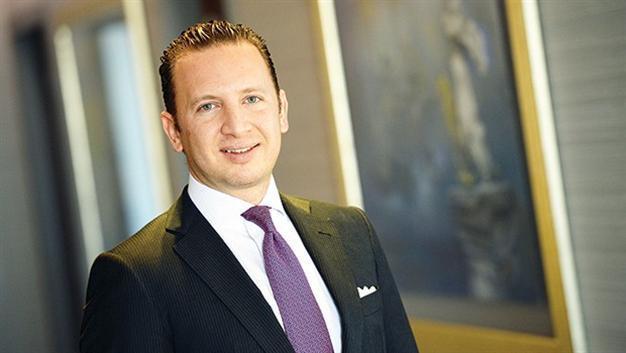Energy firms eyeing consortium to carry Israeli gas through Turkey
Merve Erdil - ISTANBUL
 At least 15 energy companies want to be part of a planned consortium which will carry Israeli gas to Europe via Turkey, according to Turcas CEO Batu Aksoy, who said the first Israeli gas may reach Turkey in the next five years.
At least 15 energy companies want to be part of a planned consortium which will carry Israeli gas to Europe via Turkey, according to Turcas CEO Batu Aksoy, who said the first Israeli gas may reach Turkey in the next five years. “We plan to establish a buyer consortium [to carry Israeli gas to Europe through Turkey]. Each consortium member will take some gas in this plan. At least 15 companies have contacted us so far and voiced their intention to become a part of this planned consortium,” he said in an exclusive interview with daily Hürriyet.
The holders of rights in Israeli’s natural gas reservoir have been in contact with Turkish companies for months, including Turcas, concerning exports of Israeli gas.
Aksoy noted it was not possible for a single company to deal with such big exports, adding that the estimated 8 billion cubic meters (bcm) of Israeli gas could be taken on an annual basis by sharing the risks with reliable partners.
“Potential consortium partners that have contacted us are composed of companies which utilize or distribute gas. Namely, they are active players in the sector. A constructive buyer consortium needs to be established,” he said.
Aksoy said Israeli gas may flow through Turkey in the next five years.
“In these projects, the construction process lasts the shortest period of time. Political discussions, the issuance of intergovernmental agreements or the financial feasibility issues take a much longer time.
Regarding Israeli gas, some bilateral agreements may be required between Turkey and Israel, between Israel and Cyprus, and between Cyprus and Turkey. In resolving long-term regional problems, the planned pipeline may play a role. If the parties want and the required political environment is created, the gas may reach Turkey by 2021,” he added.
Diversification ‘key in negotiation gas price’
Aksoy noted Turkey has become a huge gas consumer, with around 50 bcm of annual gas consumption and meeting around 55-60 percent of this demand from the Russian market.
“The less dependent a country becomes on a sole provider, the lower gas costs it faces. Europe wants to decrease the share of Gazprom in its gas market by opening their gas market more and increasing their liquefied natural gas [LNG] sources… Turkey needs to do the same. Turkey has been connected to Russia, Iran and Azerbaijan by pipelines. There are two other sources to maximize the pipelined gas potential: The eastern Mediterranean and Iraq… The inflow of natural gas via six or more pipelines from five suppliers rather than four pipelines from three suppliers will enable Turkey to gain a much bigger bargaining position in gas price talks. We believe eastern Mediterranean gas will be a huge chance for Turkey on the road to becoming an energy hub,” he said.
Aksoy noted this did not mean eastern Mediterranean gas was an alternative to Russian gas.
“Russia is a big and reliable gas supplier, I believe. Russia did not cut the gas flow to Turkey during the Cold War, the Ukraine crisis and even following the jet crisis. Russia did not cut the gas flow to Europe either… Why should [Turkey] however not reduce the costs? We need to diversify our resources one way or another. If Turkey takes 8-10 bcm gas from the eastern Mediterranean and 5-10 bcm from Iraq, the risks will be dispersed and key opportunities will be unleashed on the road to opening the energy markets in Turkey,” he added.
















